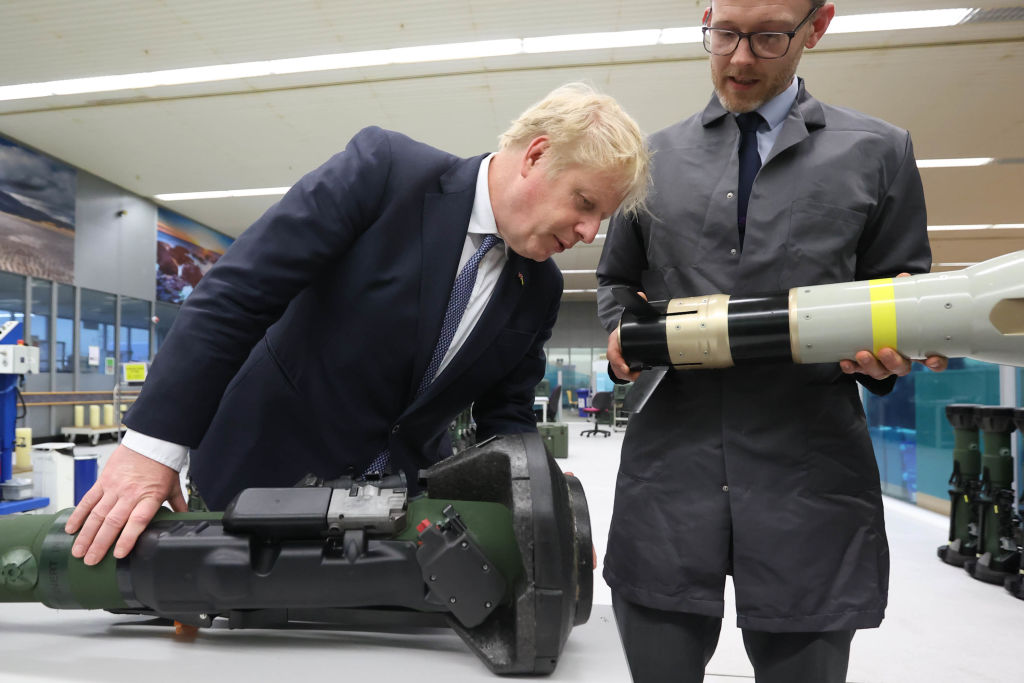On Brexit’s sixth birthday, the DUP has come back to haunt Boris Johnson

The problem with inchoate rejections of globalism is that they don’t have a Facebook profile to remind you when they were born. It’s easy to forget but today is six years since Britain voted to leave the European Union. It’s Brexit’s birthday: I’ve got the candles, let’s hope the cake isn’t held up in customs.
Whilst he may not have given his Northern MPs sufficient notice to miss their group therapy session last Friday, Boris Johnson made sure to give his greatest achievement an early birthday present. Whereas once he boasted about having an oven-ready Brexit deal, he allowed his Foreign Secretary to tear up the part of the agreement that was most distinctly his. It was after all he and the then Irish Taoiseach, who agreed to replace Theresa May’s UK-wide backstop with the Northern Ireland Protocol. Yet the legislation proposed by Liz Truss would set aside at least half of its provisions according to one independent analysis.
Many have asked “what’s changed” as if it’s a rhetorical question. But something very important has in fact changed; the Democratic Unionist Party has discovered a spine and a brain. Or more accurately, these organs were forcibly imposed on it by Traditional Unionist Voice’s Jim Allister.
For the uninitiated with the complex web of Northern Irish politics, Allister, a QC, is the head of the hard-line unionist party, which split from the DUP in 2007. Where Johnson talks in vague soundbites about Irish challenge, Allister effectively demolished the proposed legislation bit by bit – a level of analysis far beyond the capacity of the DUP, let alone their fair-weather friends in the European Research Group. Allister not only parses the text to demonstrate how it waters down GB-NI checks rather than eliminate them, but he also clearly points out that, without plans to invoke the mechanism allowing for unilateral safeguarding measures in Article 16, the government, despite its protestations, is set for a compromise with Brussels rather than confrontation.
The government doesn’t just need the EU to come back to the negotiating table, it also needs the DUP. It’s easy to forget that back in 2020, Arlene Foster celebrated her return to the Executive Office by talking about making the Protocol work for Northern Ireland. Unionist fury and business angst at how strictly the new sea border was enforced put paid to that spirit of cooperation, and gradually forced Britain and Europe into a tug of war over which aspects of their agreement had to be implemented.
For the Tories, this poses a real problem: it leaves the question of the various borders open. If the current Labour Shadow Cabinet, packed to the rafters with Remainers, were to actually find themselves in government, they would be able to bring all of the UK closer to the EU while solemnly declaring they were merely resolving the mess left by their predecessors. Even measures that fall some way short of rejoining the Customs Union, such as dynamic alignment with Europe on industrial and agrifood standards, would facilitate trade across both the Irish Sea and the English Channel, at the expense of liberal Brexiteers dreams of Global Britain. The only route towards stabilising a Brexit that maintains maximum regulatory and customs freedom for Great Britain, runs down an orange brick road.
The DUP would be wise to heed Allister’s warnings that nothing exists behind the curtain. If DUP leader, Jeffrey Donaldson, is rushed into becoming Deputy First Minister, then implementing the Protocol once again becomes Stormont’s problem. The Protocol is a mess that Boris Johnson got himself and our country into. He should be left to get us all out of it.
The problem for Johnson is that this calculation is true for almost everyone else, even his own backbenchers are unlikely to come to his aide. Following a slew of scandals, few people want to be seen to be helping Boris Johnson by making Brexit work; they either fear No10 will double-cross them or expect they can outlast them, and loathe to be tied to a sinking ship. Broken promises on protecting agricultural subsidies and regional development funding and the lack of the many promised “Brexit dividends”, only stiffens this institutional resistance.
It is no way to heal the divisions of 2016, and finally bring people together to accept let alone celebrate the victory he secured six years ago today.
